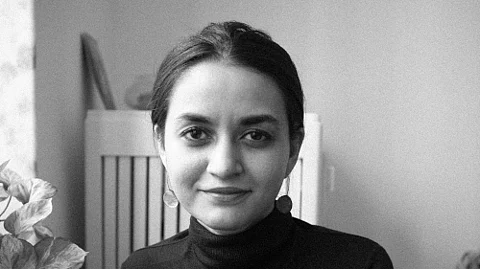

Shabana Azmi, in the winter of 1989, read out a protest note on a stage in New Delhi, amid shouts of support and outrage. Her voice was calm, without a tinge of anger: “We filmmakers and film lovers wish to register our protest against the system that on one hand claims to promote creativity and on the other connives in the murder of cultural activists.” The actor read out from one of the leaflets distributed to people gathered there. It had only been a week since the murder of Safdar Hashmi, well known playwright, activist and member of the Communist Party of India (Marxist). Shabana, who had by then become an actor to reckon with, especially in new wave cinema, was on stage of the 12th International Film Festival of India.
Thirty five years later, as Shabana is being honoured at another film festival, her little act of defiance has once again surfaced online, as it does every time actors in the industry seem markedly silent on what goes on around them. By now a veteran, known for her stunning performances and nuanced characters, Shabana will be the chief guest of the 29th edition of the International Film Festival of Kerala (IFFK) to begin in Thiruvananthapuram on Friday, December 13. The edition, which boasts a good participation of female filmmakers, will honour Shabana along with Ann Hui, critically acclaimed filmmaker from Hong Kong, with a Lifetime Achievement Award. It has also chosen to bestow the Spirit of Cinema award, constituted four years ago to honour fearless filmmakers, on Payal Kapadia, whose movie All We Imagine As Light, has taken Indian cinema to new heights, with the Grand Prix at Cannes.
Like Shabana, Payal too has a history of protesting against the government of the day – while she was a student at the Film and Television Institute of India in Pune, striking against the appointment of Gajendra Chauhan as its chairperson, resonating the voice of dissent of many in the country. Years after the protest, when the government refused to send her film – despite its glory at Cannes – as India’s entry for the Oscars, there was widespread criticism over the apparent spite in the decision.
The IFFK will also continue with the ‘female gaze’ category it launched a year before, curated by French film consultant Golda Sellam. The package will include eight films of female directors this year from across the globe – coming-of-age dramas like Hanami (by Denise Fernandes) and Holy Cow (by Louise Courvoisier), and Desert of Namibia, a Japanese film about the struggles of a Gen Z woman by Yoko Yamanaka. The others include Moon, a slow burn thriller by Kurdwin Ayub, Iva Radivojevic’s film on displacement When the phone rang and Roya Sadat’s Sima’s Song, an Afghan film set in the 1970s.
Nearly one third of all the films featured in the festival – 52 of 177 – are by women. In the competition category, six of the 14 films are by women, including one of the two chosen Malayalam movies, Appuram (The Other Side) by Indu Lakshmi. She made her debut with Nila, one of the films funded by Kerala State Film Development Corporation in its yearly project to produce works of female filmmakers. This year, Victoria, produced as part of the project and directed by Sivaranjini, has made it to the Malayalam cinema category of the festival. Two other Malayalam films made by women – Adithya Baby's Kamadevan Nakshathram Kandu (Cupid Saw The Star) and Shobhana Padinjhattil's Girl Friends – are also part of the fest.
The IFFK, known for specialising in films from Asia, Africa and Latin America, will focus on movies from Armenia this year, as the country celebrates 100 years of cinema. Other special packages include a retrospective for South Korean director Hong Sang-soo and Malayalam cinematographer Madhu Ambat, for their 50 years in cinema. There will be a Latin American package, animations and restored classics, along with films in tribute of late literary doyens of Malayalam who would have turned 100 years old this year - P Bhaskaran, Parappurath and Thoppil Bhasi. The midnight cinema, introduced a few years ago to feature a horror film at 12 in the night, will include three films this year – the Malayalam Bramayugam, the English Longlegs and the South Korean Exhuma.
There is also a new package introduced this year, called Festival Favourites, with 13 films that won audience appreciation at various film festivals. This includes Demi Moore’s much talked about body horror film The Substance, a French film called Meeting with Pol Pot about three journalists interviewing the Cambodian dictator, Julianne Moore and Tilda Swinton’s movie on female friendship The Room Next Door, and Emilia Perez from celebrated French filmmaker Jacques Audiard. Also included in the category is the opening film of the IFFK, I am still here, set in the military dictatorship of Brazil in 1970. The film comes from Walter Salles, director of the much acclaimed Motorcycle Diaries.
The festival, which expects over 13,000 delegates this time, will be spread across eight theatre complexes across Thiruvananthapuram, with 70% of the seats marked for reservation (can be done via the IFFK app or online or helpdesks at venues) and the remaining for unreserved audience. Seats at the Nishagandhi auditorium will as always be unreserved, and available for all. The festival ends on December 20.